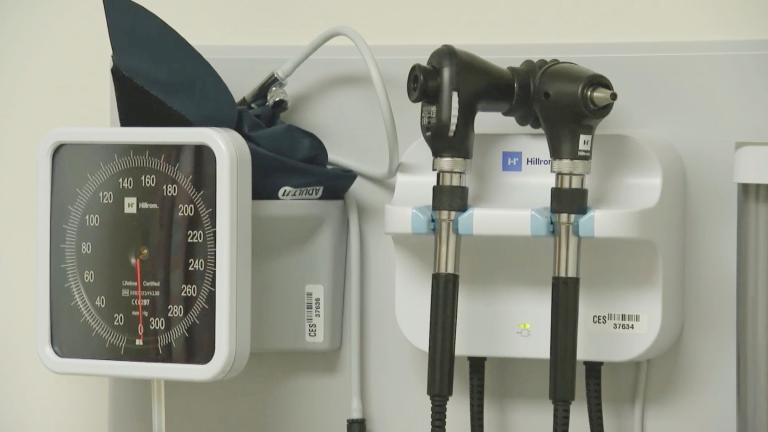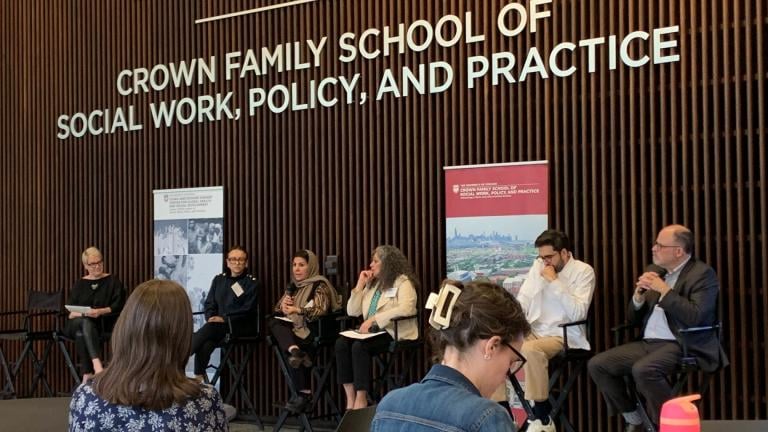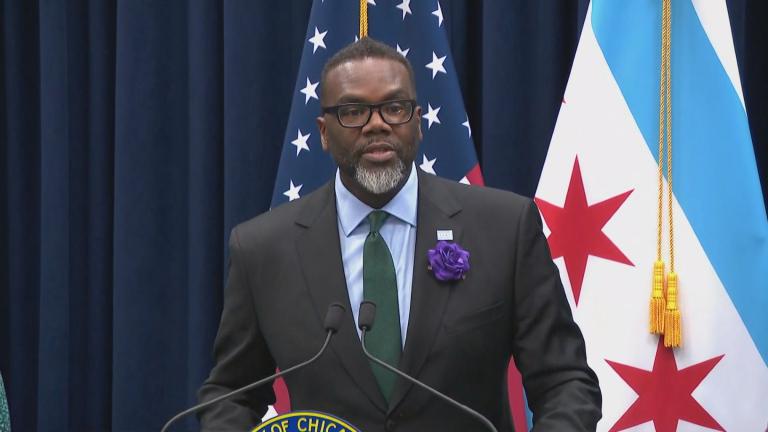Video: Ald. Ray Lopez (15th Ward), Ald. Jason Ervin (28th Ward) and Ald. Anthony Beale (9th Ward) join “Chicago Tonight” to discuss Mayor Brandon Johnson’s budget and the recent resolution supporting Israel. (Produced by Andrea Guthmann)
Hearings on Mayor Brandon Johnson’s 2024 spending plan kicked off Monday with an intense focus on the amount of money the city expects to spend on housing, feeding and caring for the men, women and children sent to Chicago from the southern border.
Several alderpeople, from across the political spectrum, asked Budget Director Annette Guzman why the mayor set aside just $150 million in his spending plan to care for the migrants, even though that is less than half of what the city will have spent to care for Chicago’s newest arrivals through the end of 2023.
Guzman acknowledged that figure would not be enough to last through the entire year. The migrant crisis is likely to cost taxpayers $361 million between January and December 2023, according to updated financial projections released Thursday by the mayor’s office.
Johnson told reporters Friday that he asked the City Council to earmark less than the full projected cost to care for the migrants to acknowledge that the burden should not fall entirely on Chicago taxpayers.
“It should not just be on the shoulders of Chicagoans,” Johnson said.
Guzman echoed her boss, telling alderpeople “we do believe this should be a shared burden.”
However, state and federal officials have been slow to respond to the city’s increasingly strident calls for help. No additional federal funds are on the horizon because of the gridlock caused by infighting among Republican members of the U.S. House of Representatives, and state officials won’t start crafting the budget for the next fiscal year until January.
Ald. Gilbert Villegas (36th Ward) told Guzman he did not understand the mayor’s strategy.
“Given the track record, we’re going to be left holding the bag again,” Villegas said, warning the mayor’s finance team that the last thing members of the City Council would want to do is come back in six months and vote to spend more money to care for the migrants.
Ald. Andre Vasquez (40th Ward), Johnson’s hand-picked chair of the Immigrant and Refugee Rights, asked Guzman what “Plan B” was if neither the state nor federal governments come up with additional cash.
“Hope isn’t a strategy,” Vasquez said, noting that the mayor’s approach to the budget to care for the new arrivals is not consistent with his rhetoric that Chicago is facing a crisis and must act urgently.
More than 3,567 migrants are living in police stations across the city and at O’Hare International Airport with another 11,043 migrants living in city shelters as of Friday, according to city data. Johnson has said the crisis was caused by “right-wing extremists bent on sowing chaos and division in our city.”
Since the first group of migrants sent to Chicago on a bus by Republican Texas Gov. Greg Abbott arrived nearly 15 months ago, more than 18,500 people have made their way to Chicago, straining the city’s social safety net and exposing deep tension between Chicago’s Black and Latino communities.
Ald. Pat Dowell (3rd Ward) asked Guzman to have her team put together a single document that shows alderpeople exactly how much money the city plans to spend to care for the migrants, all of whom are in the country legally after requesting asylum.
“We want to be transparent and clear about what’s happening here,” said Dowell, Johnson’s hand-picked chair of the City Council’s Finance Committee.
Nearly three weeks ago, Dowell called on the mayor to center the need of Black Chicagoans when dealing with this crisis and warned that every bus that arrives “is eating away at the goodwill of the people of the city of Chicago.”
Guzman and her team also faced pointed questions from Ald. Walter Burnett (27th Ward), Johnson’s vice mayor, about the mayor’s plan to create a 13-person Office of New Arrivals as part of the Department of Family and Support Services with a total budget of $1.2 million.
Burnett said he wanted “to see the same thing for returning residents,” referring to those who move back to Chicago after being incarcerated.
“Returning residents come back to the city of Chicago with less than what new arrivals have,” Burnett said, adding that he wanted to vote for more funds to care for the migrants.
“I’m saying help both,” Burnett said.
Alderpeople also peppered Guzman with questions about Johnson’s plan would make 398 of the Chicago Police Department’s more than 11,700 sworn positions into jobs open to civilians, who would not have law enforcement powers, while creating “440 promotional opportunities.”
Approximately three-quarters of the 1,700 vacant positions in the Chicago Police Department are in the department’s sworn ranks, Guzman said.
Chicago Police Supt. Larry Snelling is set to defend the department’s $1.99 billion proposed budget on Oct. 24.
Contact Heather Cherone: @HeatherCherone | (773) 569-1863 | [email protected]








